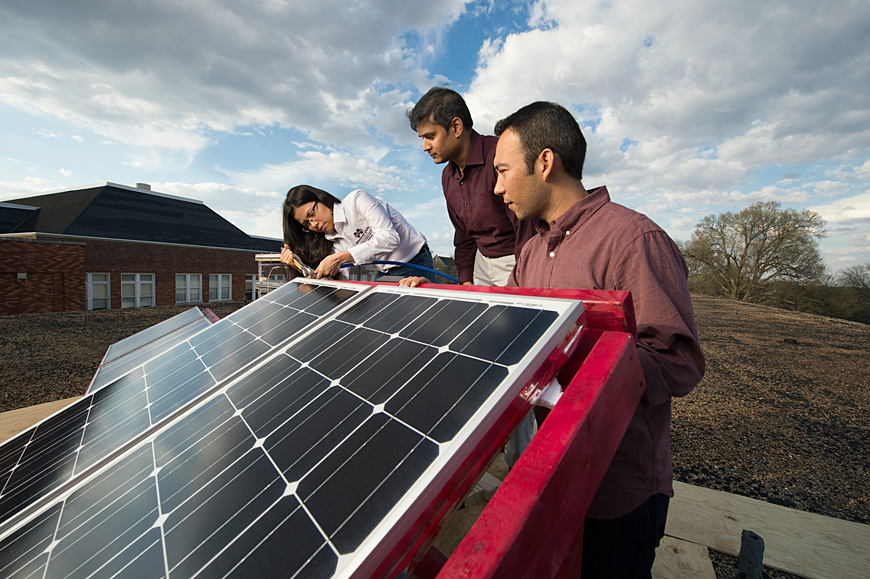
Contact: Zack Plair
STARKVILLE, Miss.—A recent federal grant will enable a Mississippi State student team to continue developing a project to provide clean, sustainable water for areas that do not have it.
The U.S. Environmental Protection Agency said the university is among 38 nationwide being awarded $15,000 awards through its People, Prosperity and the Planet, or P3 program.
Led by principal investigator Veera Gnaneswar Gude, four undergraduate and two graduate students at MSU are developing a more affordable method to desalinate seawater and brackish water to make potable water.
The research team includes team leader Edith Martinez-Guerra, a graduate student in civil engineering, and Hugo Guerra, a graduate in foreign language, both of Starkville; senior civil engineering majors Crystal Byrd from Wesson, Maria Solis from New Albany and Jeff Steinwinder from Ellisville; and sophomore civil engineering major Ben Spiller of Petal.
The MSU team’s research could be welcomed by rural and coastal communities in developing nations, as well as residents of such U.S. states as New Mexico and Arizona, Gude said. A wealth of brackish underground water beneath these and other Southwestern states could more efficiently be treated through the process, explained Gude, an assistant professor of civil and environmental engineering in MSU’s Bagley College of Engineering.
“This year’s P3 teams have created innovative research projects that tackle some of our most pressing environmental and public health challenges,” said Thomas A. Burke, deputy assistant administrator of EPA’s Office of Research and Development.
“These students have the opportunity to bring their exciting new ideas for innovation in sustainability to life by expanding their learning experience beyond the classroom,” added Burke, also the agency’s science adviser.
According to Gude, current technologies for the desalination process use electricity to generate the required high temperatures and often are very costly.
Known as low-temperature thermal desalination, MSU’s system operates under a natural vacuum and uses solar energy to treat water, the New Mexico State University doctoral graduate explained. “Unlike other treatment processes, this process is insensitive to high salt concentrations.”
With the EPA grant, Gude said MSU student researchers will be able to complete a demonstration unit that currently produces a few gallons of fresh water each day. The funding also will help cover travel expenses when team members travel to Washington, D.C., in April to share their work with others at the USA Science and Engineering Festival.
Also, as a Phase I winner in the P3 challenge, MSU now is competing for a $75,000 Phase II grant. If its winning ways continue, Gude said the team would use the Phase II money to develop a unit capable of processing several hundred gallons of water.
“We are progressing really well with this project,” Gude said. “I’m very confident we will compete well for the next level of funding.”
MSU is Mississippi’s leading university, available online at www.msstate.edu.